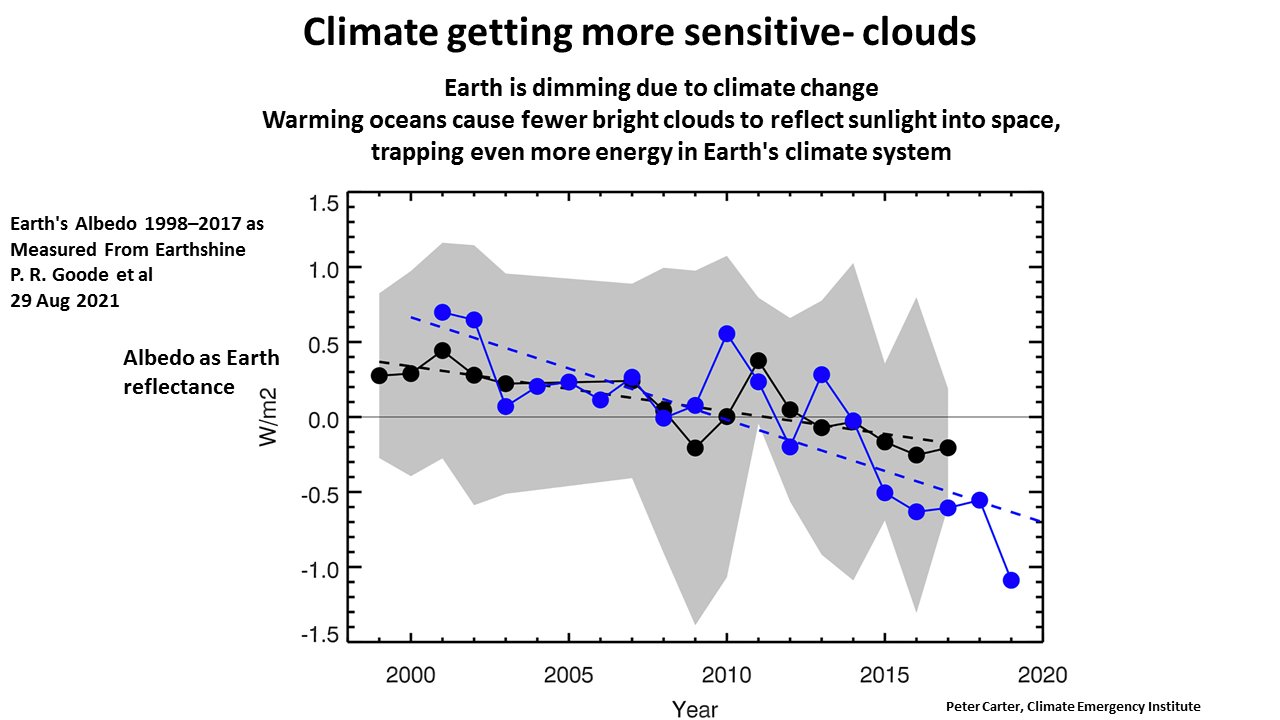The planet has dimmed by 0.5 percent in 20 years. Researchers believe climate change could be responsible.
Half a percent of dimming in 20 years may not sound like a huge deal, but considering the Earth is 4.5 billion years old it isn’t exactly great.
When talking about the Earth losing its shine, we aren’t referring to Mars exploration being the hot new topic in planetology, or making a bleak metaphorical inditement against humanity.
We’re quite literally talking about dwindling levels of sunlight being reflected off the planet and back into space – which is incidentally how the Moon gets its glow.
In-fact, the brightness of the Earth is precisely measured by determining how much light is being reflected by the Moon’s surface. Over the last 20 years, these ‘albedo’ figures have been recorded whenever the Moon is visible in its slim crescent form with clear weather conditions.
Examining data over the last two decades, atmospheric researchers have declared that climate change – already deemed to have shifted the planet’s rotational axis – may be responsible for a gradual dimming of Earth’s overall shine. Though correlation may not indicate causation just yet.
What cannot be denied is that Earth is absorbing more radiation than in previous decades, which coincides with the most notable dips in albedo throughout 801 recorded measurements.
Analysing satellite data at the Big Bear Solar Observatory in California, astrophysicist Philip Goode believes that sparse cloud coverage above the Pacific coasts of North and South America could be a key causation for the recent changes.





















